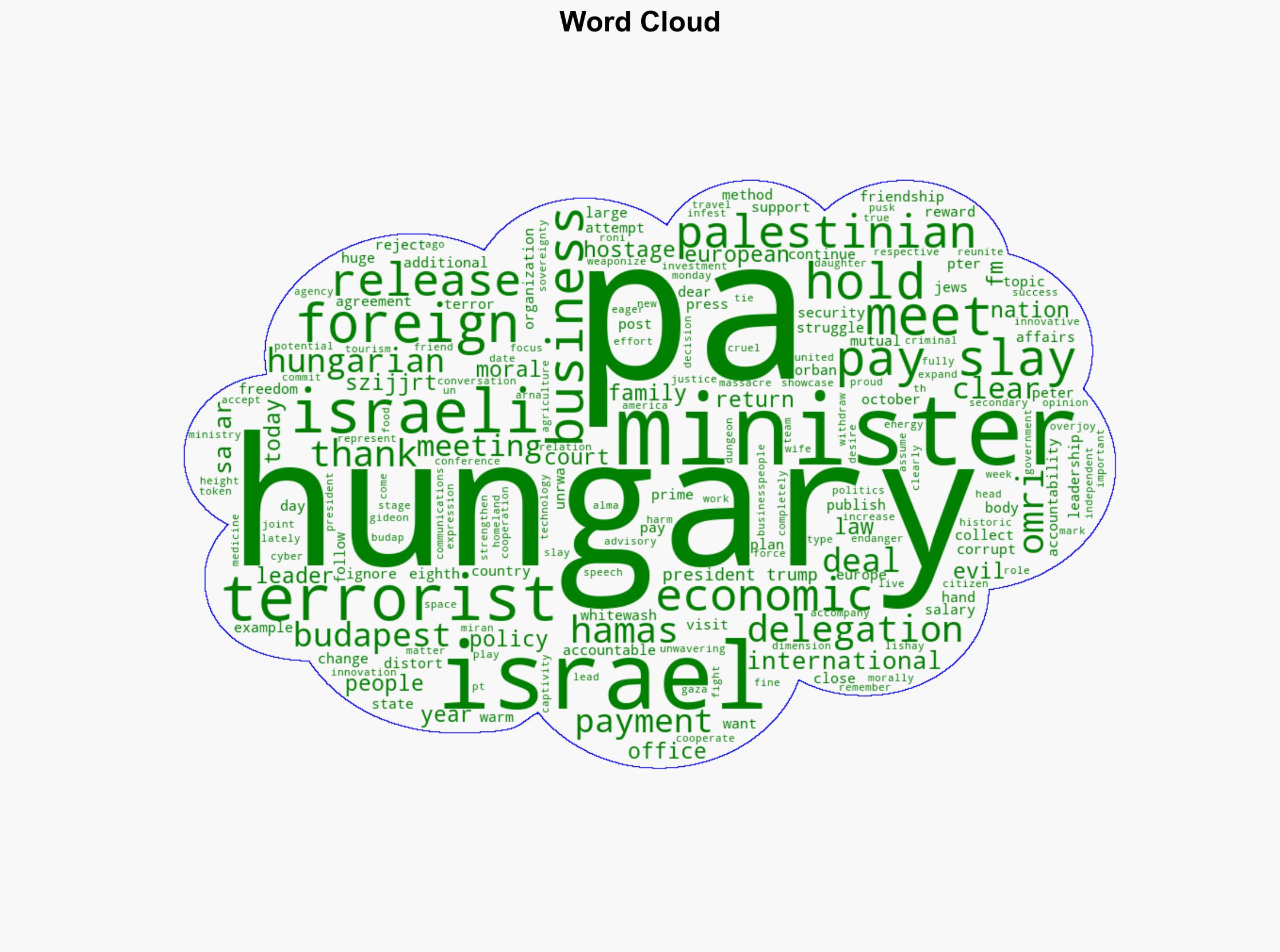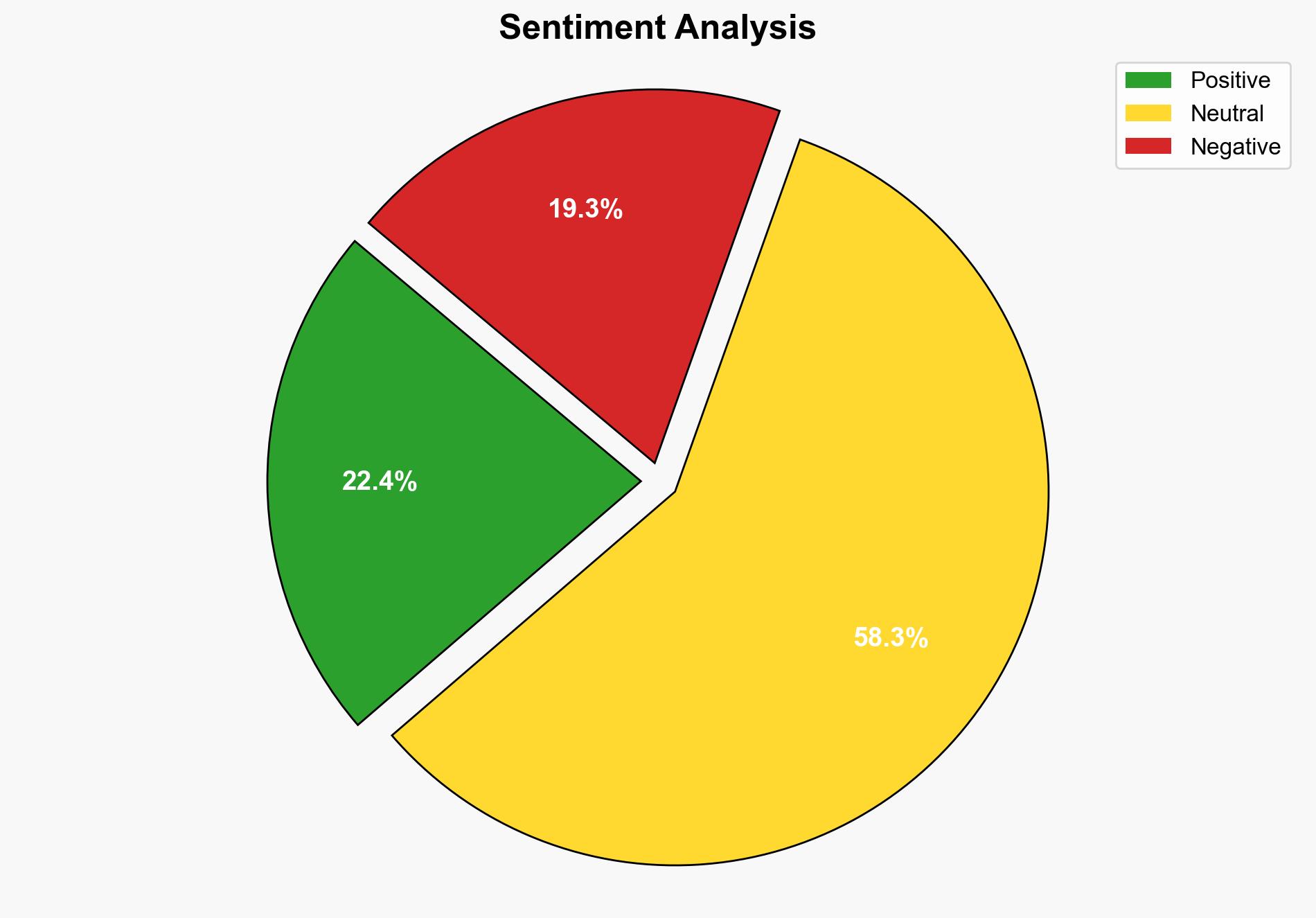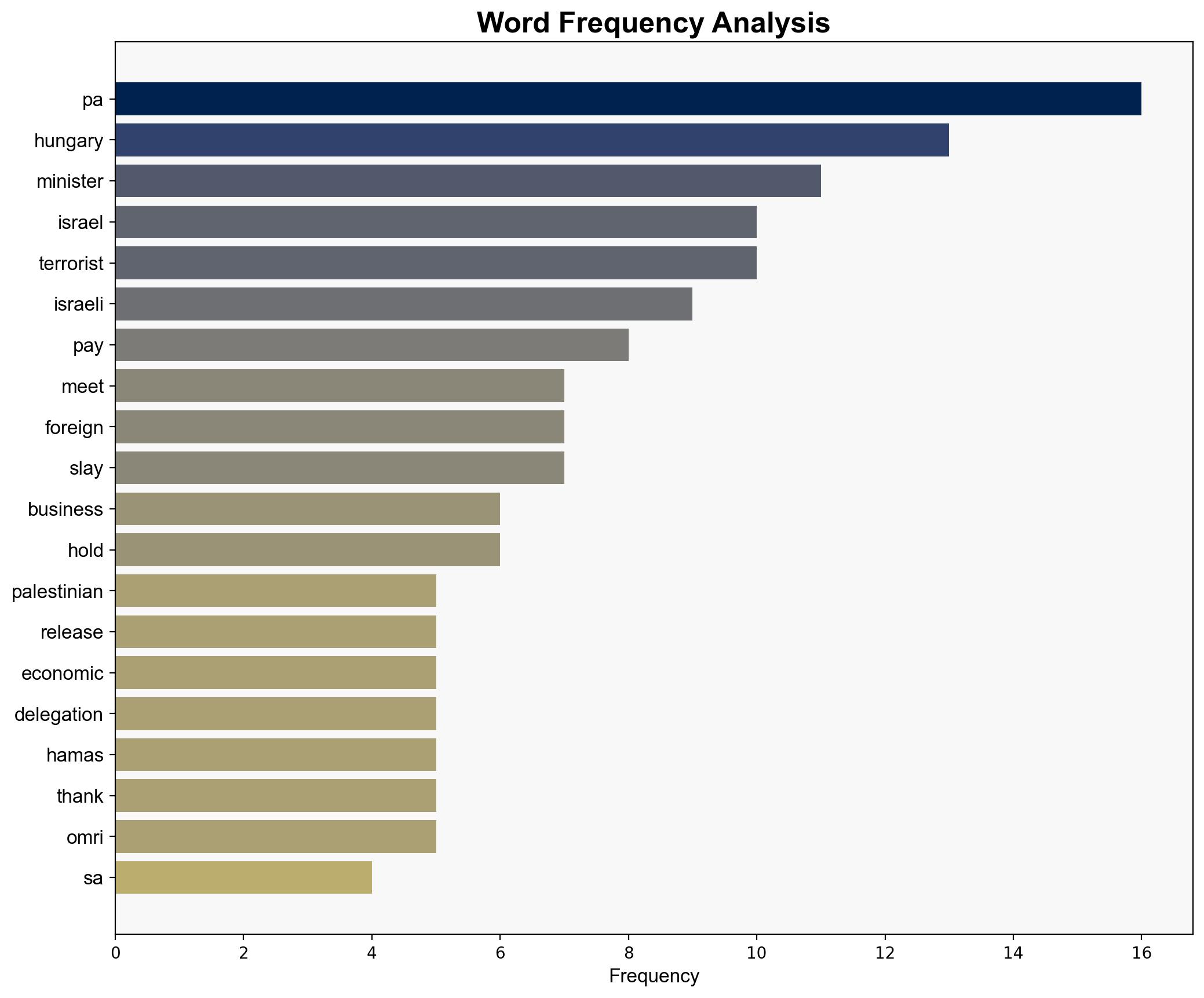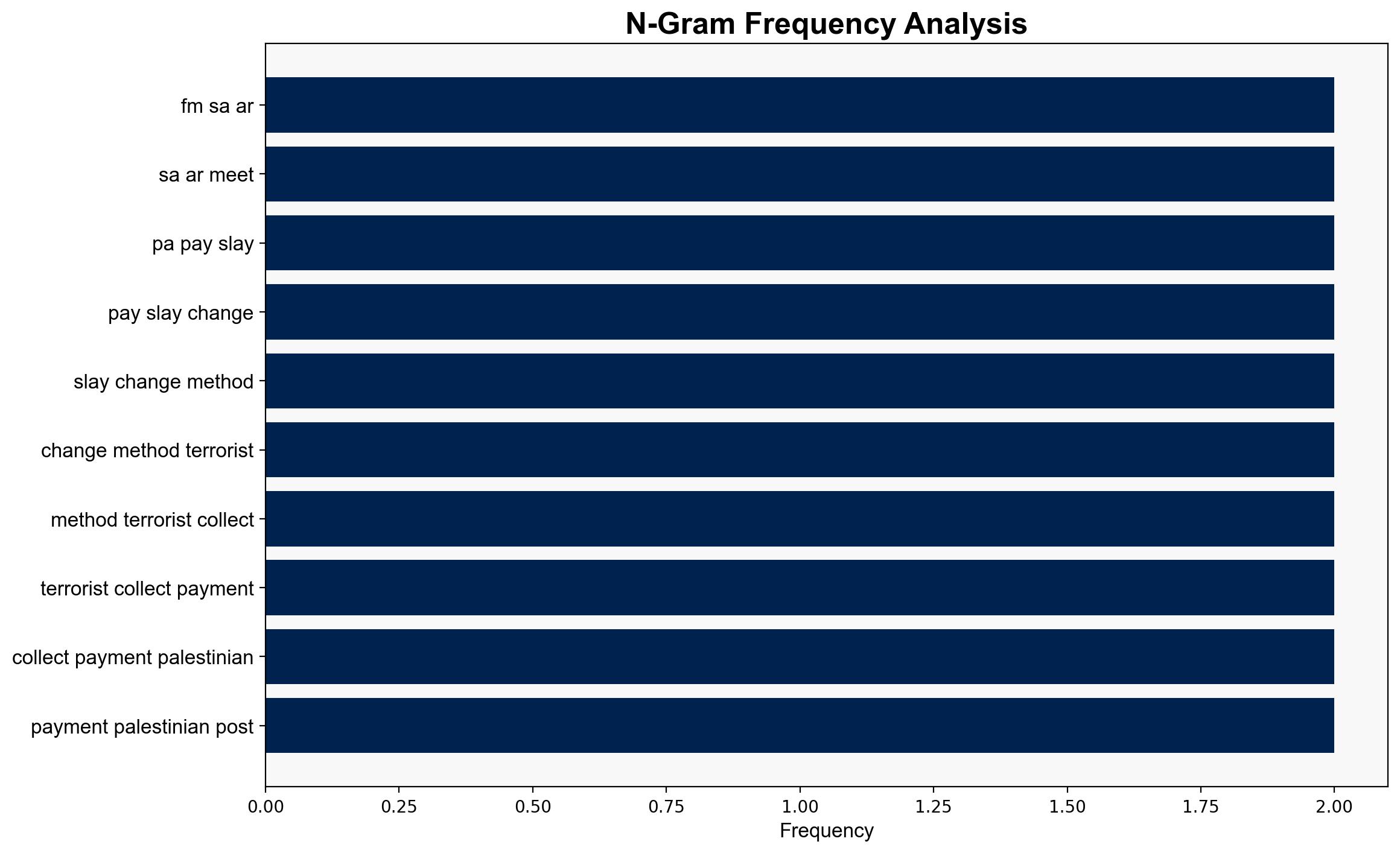FM Sa’ar meets with Hungarian FM Pter Szijjrt in Budapest – Globalsecurity.org
Published on: 2025-10-28
Intelligence Report: FM Sa’ar meets with Hungarian FM Pter Szijjrt in Budapest – Globalsecurity.org
1. BLUF (Bottom Line Up Front)
The meeting between FM Sa’ar and FM Pter Szijjrt in Budapest is likely aimed at strengthening bilateral relations, particularly in economic and security domains, while also addressing mutual concerns regarding international legal bodies and counter-terrorism. The most supported hypothesis is that this meeting is part of a broader strategy to solidify alliances and counter perceived international legal threats. Confidence level is moderate due to limited direct evidence of specific outcomes. Recommended action includes monitoring subsequent diplomatic engagements and economic agreements for further insights.
2. Competing Hypotheses
1. **Hypothesis A**: The meeting primarily aims to enhance economic cooperation and investment between Israel and Hungary, leveraging the presence of a large Israeli business delegation to foster mutual economic benefits.
2. **Hypothesis B**: The meeting is strategically focused on countering international legal challenges and reinforcing political alliances against perceived biases in international legal institutions, with economic discussions serving as a secondary agenda.
Using ACH 2.0, Hypothesis B is better supported by the emphasis on political statements against international legal bodies and the shared stance on counter-terrorism, as highlighted in the source text.
3. Key Assumptions and Red Flags
– **Assumptions**: It is assumed that both countries have aligned interests in countering international legal challenges and that economic cooperation is a secondary, albeit important, agenda.
– **Red Flags**: The lack of specific economic agreements or detailed outcomes from the meeting raises questions about the true focus of the visit. The strong political rhetoric may overshadow economic intentions.
– **Blind Spots**: Potential internal political dynamics within each country that may influence the meeting’s outcomes are not addressed.
4. Implications and Strategic Risks
– **Economic Implications**: Strengthened economic ties could lead to increased bilateral trade and investment, particularly in technology and security sectors.
– **Geopolitical Risks**: Aligning against international legal bodies may isolate both countries from broader international support and could escalate tensions with entities like the International Criminal Court.
– **Counter-Terrorism**: Enhanced cooperation in counter-terrorism could improve regional security but may provoke adversarial responses from targeted groups.
5. Recommendations and Outlook
- Monitor follow-up meetings and agreements to assess the depth of economic cooperation.
- Evaluate the impact of joint political stances on international legal bodies on broader diplomatic relations.
- Scenario Projections:
- Best Case: Strengthened economic and security ties lead to mutual growth and enhanced regional stability.
- Worst Case: Political alignment against international bodies results in diplomatic isolation and retaliatory measures.
- Most Likely: Incremental economic cooperation with continued political rhetoric against international legal challenges.
6. Key Individuals and Entities
– Gideon Sa’ar
– Pter Szijjrt
– Omri Miran
– Prime Minister Orban
– President Sulyok
7. Thematic Tags
national security threats, cybersecurity, counter-terrorism, regional focus




